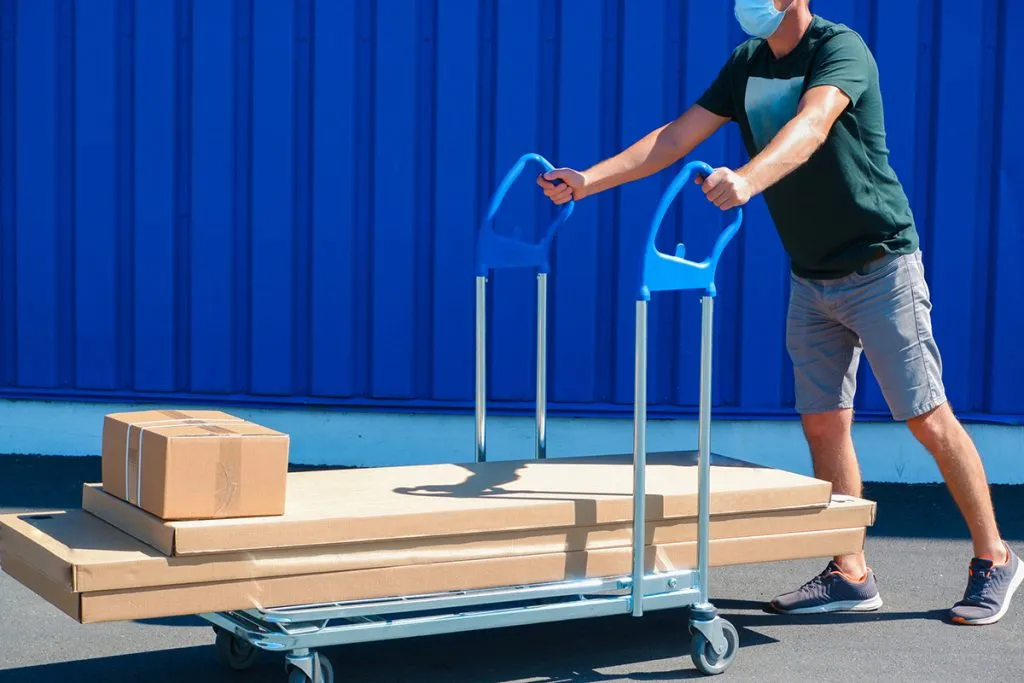If you work in a factory or warehouse, you understand how hot it can get in the summer months. The intense heat and the physical demands of the job may make you wonder if you can wear shorts to work in the summer.
You can wear shorts in a factory or warehouse, as it is not strictly prohibited by OSHA. But your employer’s dress code policy likely prohibits it. Long pants are considered Personal Protective Equipment (PPE) for many warehouse jobs.
In this article, I’ll discuss whether or not it’s safe to wear shorts in a factory or warehouse and expand further on employee dress codes and why these policies are in place.
The Safety of Shorts in a Factory or Warehouse
It can be both difficult and expensive to regulate temperatures in a large warehouse. This leads to hot conditions, particularly in the summer months. Because of this, employees might wonder if wearing shorts to their factory or warehouse jobs when it’s hot out is allowed or safe.

Wearing shorts is not recommended when working physical jobs that require the operation of and close proximity to heavy machinery.
It is likely that your employer prohibits wearing shorts to work as a safety measure.
Manual Labor Concerns
Safety is the primary concern for most employers, as there’s a high risk associated with manual labor in factories and warehouses. Because of this, warehouse employers have a different dress code policy is from employers who mostly employ desk workers.
Employees working in warehouses and factories need to take function into account over fashion, which is why steel-toed boots and reflective vests are required at so many factories and warehouses.
Being visible and protected is a unique consideration in warehouse work environments.
OSHA Requirements
OSHA places requirements upon employers to determine what potential hazards exist in the workplace and require employees to implement dress codes that will help protect them from these hazards.
Check Your Employer’s Dress Code
Your employer, not government mandates, determines your ability to wear shorts to work in a warehouse or factory. As such, any questions regarding what you can and cannot wear can likely be located in your employee handbook.
If you work in a warehouse or factory setting and have a job that doesn’t require you to be around potential workplace hazards, you may be able to appeal to your employer and adopt a different dress code.
Unfortunately, in most situations, wearing shorts to work in a warehouse or factory is unsafe, and as such, you will be expected to wear long pants to work.
However, many employers allow their employees to wear short sleeves to offset this.
How the Dress Code Impacts Wearing Shorts in a Factory
While it can feel like many workplace requirements are arbitrary, employers are required to set guidelines in place that keep employees safe from potential hazards.
Potential hazards can include but are not limited to:
- The operation of heavy machinery such as forklifts or pallet jacks.
- Exposure to scalding materials such as asphalt, and chemical materials.
In addition to these hazards, employees working in warehouses and factories often work with sharp objects, such as box cutters, which could be potentially harmful if misused or dropped. Not only are employers required by law to enforce dress codes that keep their employees safe, but they also have to keep in mind professionalism and potential liability.
Related Articles:
- 11 Jobs That Allow Wearing Hoodies and 7 That Don’t – Ultimate Guide
- 15 Jobs That Allow Wearing Leggings and 7 That Don’t – The Ultimate Guide
Employers Consider Professionalism
Running a warehouse or factory where employees are not required to wear long pants can look bad, even if it’s perfectly safe. Employers have to consider professionalism and optics when deciding upon a dress code.

Because wearing long pants is the status quo in factory and warehouse work, your employer is likely to adopt this dress code, even if it’s not completely necessary.
Some people also believe in the ideology that you should dress for the job you want, not the job you have, and because shorts are generally frowned upon in the workplace, this is true for factories and warehouses as well.
Employers Want To Avoid Workman’s Compensation Claims
If an employee is injured on the job, employers may need to make a workmen’s compensation claim to aid in the employee’s recovery. The potential for accepting liability incentivizes employers to put processes into place that minimize their financial risk and disruption to workflow if an employee is unable to come to work due to an injury sustained on the job.
Final Thoughts
Most employers have dress codes in place that require employees to wear long pants to work if they work in a factory or warehouse.
While OSHA does not strictly prohibit employees from wearing shorts to work in a factory or warehouse, they do require employers to implement dress codes that will protect employees from potential hazards for which employers would be required to assume responsibility.
Speak with your employer if you believe wearing shorts would not put you in any jeopardy, and they may be able to adjust your dress code.
What To Read Next:






